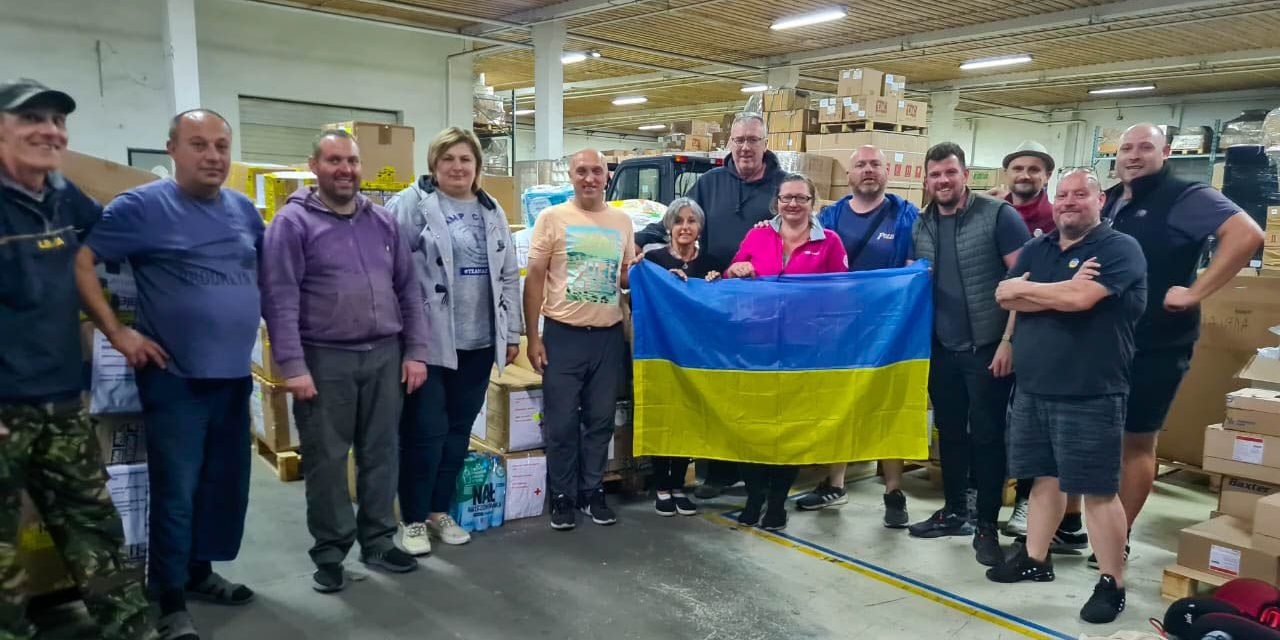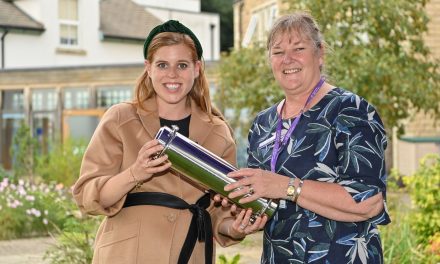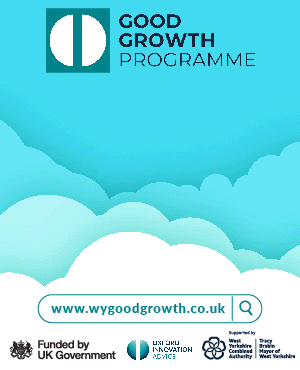By Leah Dorotiak, Лія Доротяк, @littleukrainianblog
As Christmas approaches, there’s a festive feel in many parts of the world. In Ukraine, however, the cold winter months bring an uncertain feeling as millions are displaced, separated from loved ones, and left without heating and power because of blackouts created by constant shelling. With temperatures reaching as cold as -10C in some regions, Ukrainians are in desperate need of humanitarian aid.
The local group ‘Huddersfield to Ukraine, Humanitarian Aid Appeal’ have already delivered three convoys of aid to Ukraine since the invasion began, but their work hasn’t stopped. On December 7, another shipment is going directly to those in need.
A few months ago, I was privileged enough to design the logo and van stickers for the group – a small act to help them correctly and safely identify themselves on their last convoy to Ukraine.
Upon their return, I asked organiser Tim Marsden, who runs St Andrews Motor Company in Huddersfield, for some photos and a summary of their journey into Ukraine. His response was incredibly moving, so much so that it should be shared to remind others of why we continue to support Ukraine.
His account of their journey, the aid they deliver and the people and hospitality they encountered are best told from his own words.
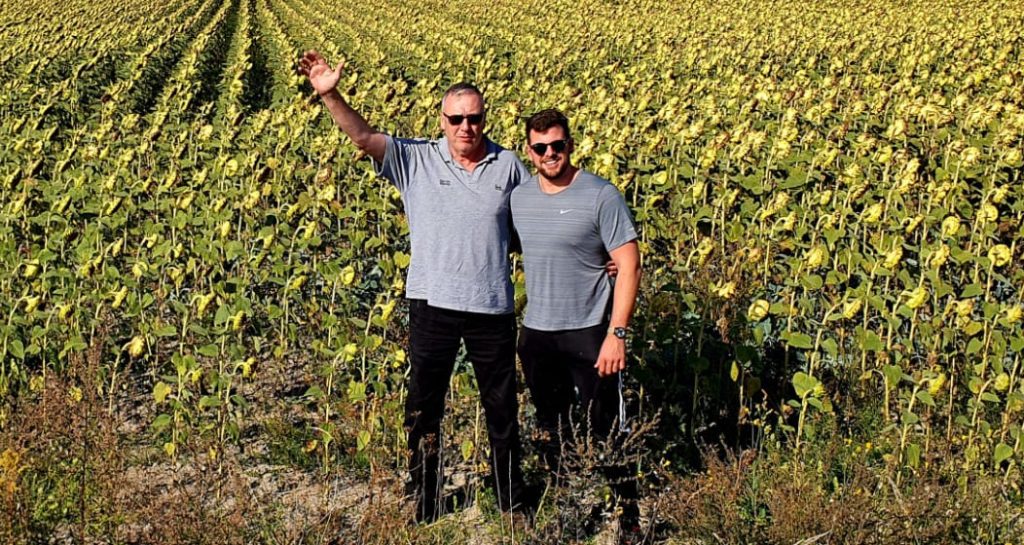
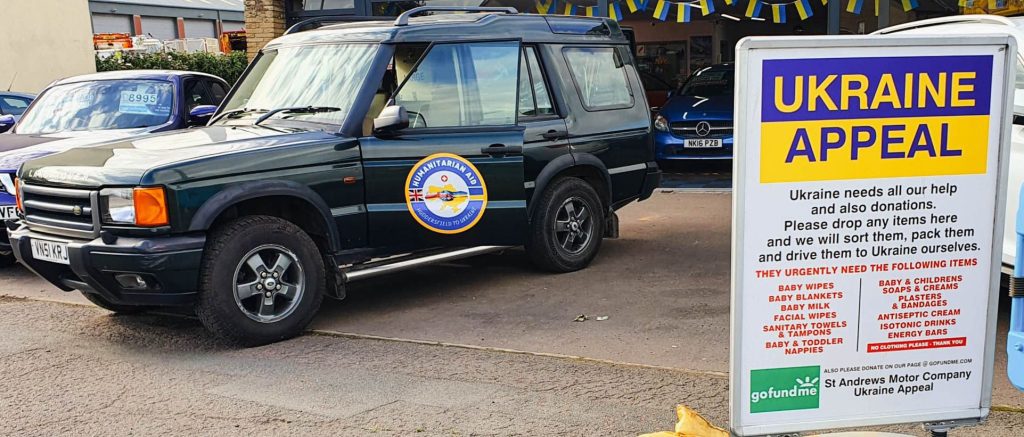
About the group:
The staff and family at St Andrews Motor Company have opened their showroom in Leeds Road to house donations of medical and sanitary aid to be delivered to Ukraine. Here, the volunteers sort through and pack the items ready have them delivered to those in need.
Their next consignment of aid is going on December 7, and they urgently need warm winter clothing, generators, power banks, personal hygiene items, baby milk and wipes, and trench candles. For those who don’t know, trench candles are made from cardboard and paraffin wax, and provide crucial warmth and light for soldiers on the frontline. For more information, you can join their Facebook group here.
Their most recent convoy:
On September 5 2022, the group embarked on their third convoy to Ukraine since the full-scale invasion began. But their work doesn’t begin on the day – they spent months collecting, sorting through, organising, and packing donations every day. Just as I spoke with Tim for this article, he had spent the prior night driving to Sheffield to pick up and prepare more donations for their next delivery.
The team delivered medical and sanitary goods, clothing, dried food and other humanitarian aid. Their vehicles were packed full, ready to deliver this to brave women, children and military personnel defending Ukraine on the frontline.
Alongside this, they also brought enough dried vegetable, mushroom and tomato soup for six thousand portions. Intended for those on the frontline, boiled water is the only ingredient then needed for a quick, warm pick-me-up.
Where your donations go:
In addition to their two convoys to Ukraine this year, they have also managed to send ‘mum and baby’ health packs to Krakow, Poland. There, these packs are distributed to new Ukrainian mothers who have fled to safety.
A disability scooter was also donated and successfully delivered to a young man in central Ukraine, who has lost both of his legs defending his country.
Earlier this year, enough funds were raised to purchase and donate an ambulance. They also recently delivered a six-seater vehicle to aid in rescuing and transporting the injured to hospitals and medical centres.
The war is also taking a huge toll on animals – household pets, farm animals and wildlife. The group teamed up with another local organisation to send a 40ft truck loaded with animal food to Kharkiv.
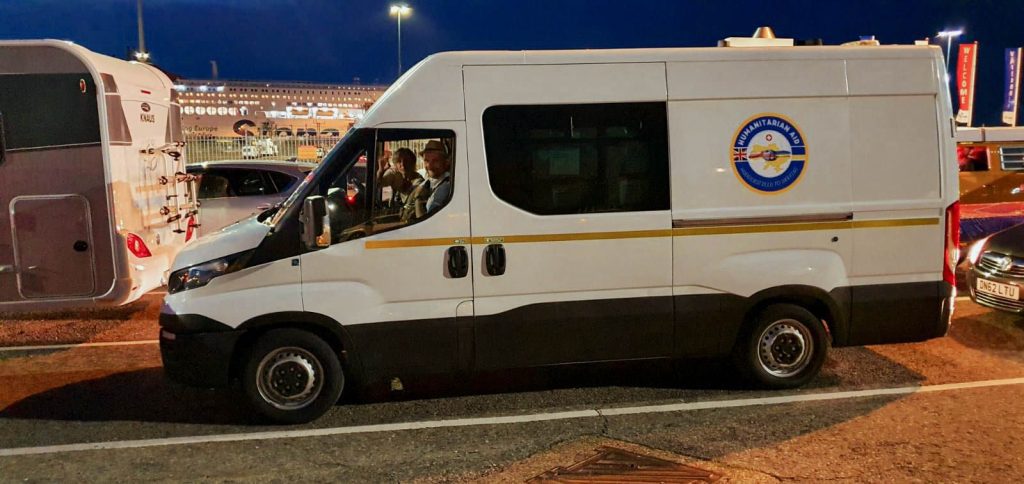
Life in Ukraine:
“What can I say? There’s a war on and it’s a war zone.”
Tim told me that when you first drive into Ukraine, you’re informed about the possibility of your phone being hacked or beginning to act strange – something which the team experienced firsthand.
The location of the organisations they liaise with must be kept secret, mostly because of the threat of Russian collaborators in some parts of the region. For this reason, the group only work with trusted contacts they built up over time.
Passing sunflower fields that stretched onto the horizon, they stopped for a couple of photos.
Walking back to the van, it was noticeable how the beautiful scenery of Ukraine is marked by war. Surrounding sunflower fields are littered with anti-tank traps and road blockades made from tyres and concrete. In the middle of fields, artillery in defence of oncoming Russian jets are poised at the sky, ready to protect.
A warm Ukrainian welcome:
“The welcome we receive cannot be described, only felt.”
The arrival and unloading of the deliveries is an emotional event; Ukrainians cannot believe that people would want to drive all the way from the UK solely to help them. The unpacking was greeted with meat, tomatoes and homemade breads as everyone sprang into action organising and sorting through donations.
The same evening, the team were invited to enjoy homemade foods and vodka in typical Ukrainian style. According to Tim, the breakfast that followed the next morning can only be described as something that would be laid out to “impress long lost family.”
Rostik, one of the drivers for the convoy, is a Ukrainian living in Huddersfield, who was also acting as a translator for the journey. His brother lives around two hours from where they were – too close to travel all this way and not have him see his family.
“One of the very best nights we’d had for a long time.”
At his brother’s house, a BBQ and more homemade vodka was prepared for everyone. After the drinks – four bottles to be precise – the speeches began, with “Slava Ukraini” declared at the end of each one alongside a shot of vodka.
Later the guitar came out, and the national anthem of Ukraine was collectively sung alongside the folk song “Oy U Luzi Chervona Kalyna,” which has become synonymous with present-day Ukrainian resilience. Sharing cultures, Tim even treated them to a full rendition of “On Ilkla Moor Baht ‘at!”
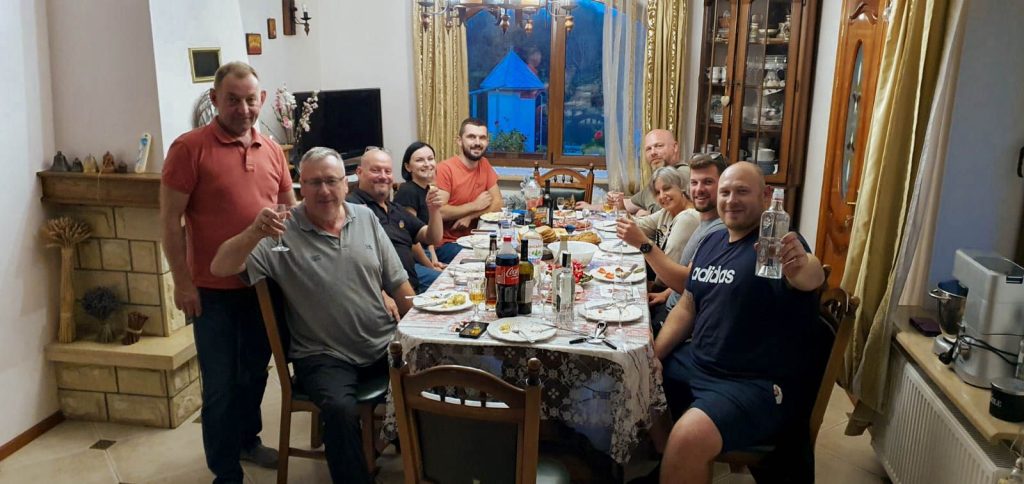
Homes for Ukraine:
After visiting Rostik’s family, Tim was asked if the group could pick up a Ukrainian woman who needed help exiting Ukraine quickly. The team drove to Lviv’s train station, where she had already travelled for six hours to reach.
“The lady’s name is Anna, and Anna became my living proof of the starfish story.”
They were asked to drop Anna off at an airport in Poland for a flight to her sponsor in the UK. The risk of illegal organisations taking advantage of displaced persons is still large, so the group felt safer driving her directly to the UK with them.
Once back in the UK one of the wonderful drivers, Mandy Cioch, personally drove Anna to her sponsor within the UK.
“If I had to sum up Ukraine and its people…”
I then asked Tim to summarise his experience of the country and its people. As a Ukrainian, I feel a strong sense of pride and emotion for our resilience as a nation. As a British citizen, I feel incredibly moved that this group have donated over six months of their personal lives to go out of their way to help people, to whom most have no connection with.
Tim said: “I’ve been fortunate to travel to many parts of the world, but I’ve never received the hospitality from anywhere as I did here.
“Absolutely everyone we met is bursting with national pride. Anyone but anyone will belt out the national anthem, given the opportunity.
“The resilience is just as strong as their national pride, and absolutely every single person there is prepared to take up arms when it is their turn, and fight for their country.
“And lastly, I honestly and genuinely do believe that they will drive the Russians from their land, and with the help of some support, we’re going to keep on going there until they do. Oh, and the vodka…the vodka is plentiful and bloody strong!”
How to help:
There are many ways to support the fantastic work this group does. On December 7, a shipment of aid is going to Ukraine. You can find the link for donating to their GoFundMe here.
Donations:
Alternatively, you can donate the humanitarian items so greatly needed directly to them on Leeds Road, where they will be sorted and delivered straight to those in need. Ahead of the next consignment, they urgently need the following items:
- First Aid kits
- Field bandages
- Pain relief tablets
- Sterile dressings
- Surgical tape and wound closure strips
- Vicks vapour rub
- Barrier cream
- Pocket tissues
- Calpol
- Energy bars
- Cough syrup
- Nappies
- Sanitary towels and tampons
- Blood pressure machines
- Baby milk, blankets and clothes
- Good quality, warm coats, hats and gloves
- Boots for the front-line defenders
- Plain white sheets or any durable white materials, ready for camouflage in the winter snow
- Dried foods (soup, pasta, anything that can be made easily with boiling water)
- Power banks
- Foiled body wraps
- Battery-operated torches
- Sleeping bags
- Trench candles.
Clothing with no branding on is also useful, as the team can sell this to raise money for the fuel. If anyone has connections with medical supplies or dried foods that are nearing their use-by date, please get in contact with the group.
To donate there is a GoFundMe page HERE.



